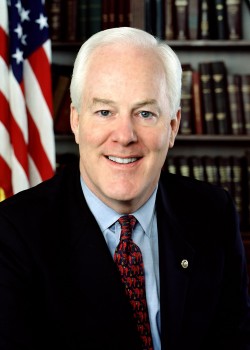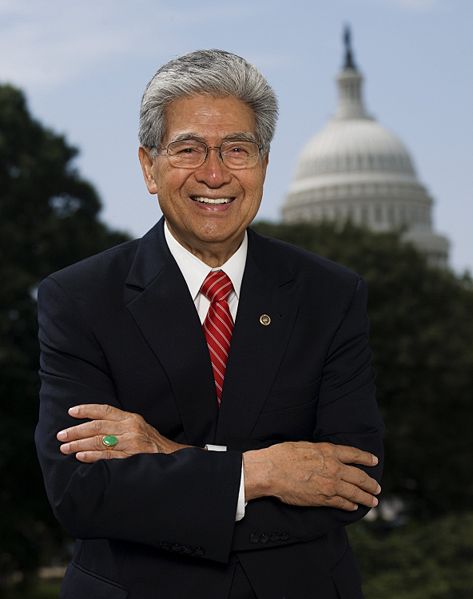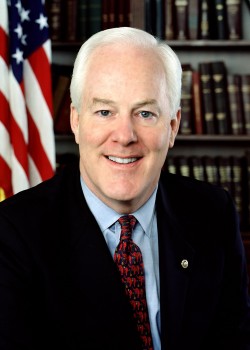
Sen. John Cornyn is expected to vote against a climate bill, and that’s confirmed in this letter he wrote to a constituent. He argues that the Kerry-Boxer climate bill would “create a massive new government bureaucracy, raise energy prices, increase taxes, and send American jobs overseas.”
Dear [Constituent]:
Thank you for contacting me regarding a new international treaty on global climate change. I appreciate having the benefit of your comments on this matter.
As you may know, the annual climate change conference of the United Nations Framework Convention on Climate Change (UNFCCC) will be held in Copenhagen, Denmark, in December 2009. The UNFCCC sets an overall framework for intergovernmental efforts to address climate change and encourages industrialized countries to stabilize greenhouse gas emissions. The United States ratified the UNFCCC in 1992, and the treaty entered into force on March 21, 1994. On December 11, 1997, the Kyoto Protocol to the UNFCCC was adopted by the UN, and went into force on February 16, 2005, setting binding targets for 37 industrialized countries and the European community for reducing greenhouse gas emissions. The United States did not sign or ratify the Kyoto Protocol.
UNFCCC participants had anticipated reaching a climate change agreement in Copenhagen, based on the draft text of a climate change treaty that was released earlier this year. This treaty is intended to follow on the first phase of the Kyoto Protocol, which will expire in 2012. However, UN Secretary-General Ban Ki-moon recently stated that a climate change treaty is now an unlikely outcome at the summit in Copenhagen. Nevertheless, should an agreement be reached, it will remain subject to ratification by the United States Senate. The United States must carefully evaluate actions taken by international organizations to ensure they are consistent with our national interests. As Americans, we take pride in our nation and its hard-fought independence, and you may be certain that I will vigorously oppose any legislation or action that infringes upon that sovereignty.
Furthermore, President Barack Obama’s Fiscal Year 2010 budget request proposes a new national energy tax that would raise energy prices on Texas families by assuming revenues in excess of $650 billion from a cap-and-trade program. Recently, the Clean Energy Jobs and American Power Act (S. 1733) was introduced in the Senate Environment and Public Works Committee, following the House of Representatives’ passage of the American Clean Energy and Security Act of 2009 (H.R. 2454). S. 1733 and H.R. 2454 would implement President Obama’s initiative to regulate greenhouse gas emissions. I welcome any opportunity to improve our stewardship of the environment; however, I cannot support legislation that would create a massive new government bureaucracy, raise energy prices, increase taxes, and send American jobs overseas. Several analyses show that Texas, as the nation’s leading energy producer and key manufacturing center, would be saddled with a disproportionate amount of the cost to implement a cap-and-trade program. In fact, the Texas Comptroller’s office notes that, if the current cap-and-trade proposals were enacted, it could cost Texas families a total of $6.9 billion dollars and, in its first year of implementation, displace up to 277,000 Texas jobs.
I strongly believe that innovation and technological advances in areas such as clean coal, nuclear, wind and solar energy will address our nation’s environmental challenges more effectively than proposals, such as S. 1733 and H.R. 2454, that create more government regulation and stifle economic development. Furthermore, no effort to control potentially harmful emissions should put the United States at an economic disadvantage—or penalize American families and workers—by allowing other countries, such as China, to ignore environmental considerations in their economic policies. You may be certain that I will work to enact sensible policies that protect our environment while also growing our economy and protecting American jobs.
Track the climate debate and take action I appreciate having the opportunity to represent the interests of Texans in the United States Senate. Thank you for taking the time to contact me.
Sincerely,
JOHN CORNYN
United States Senator
Do you know what your senators think about climate legislation? Ask them, then tell us what you find out.




